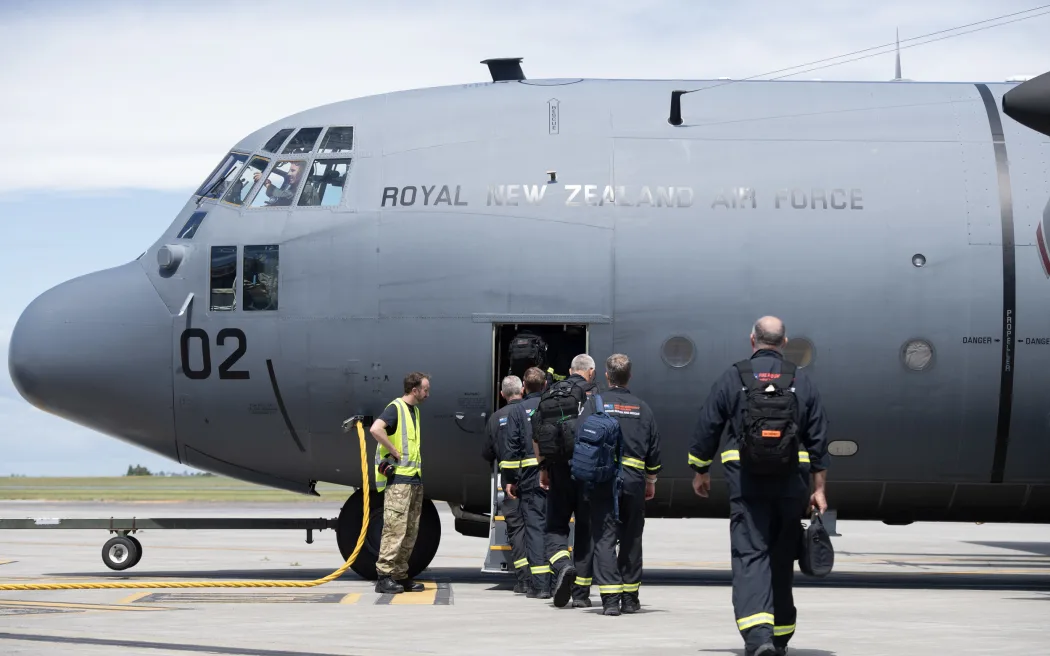There are warnings the death toll is likely to rise as rescue efforts continue in Vanuatu for people trapped in collapsed buildings.
The government confirmed Wednesday at least 14 people had died, though a former Vanuatu prime minister said officials told him that had already risen to 19. Hundreds more were injured.
International military and emergency support was on the way, including from New Zealand.
But access was difficult with the international airport still closed for commercial flights.
Vanuatu Business Resilience Council chair Glen Craig told Morning Report the expectation was that at least 20 people and “hopefully less than 25” had died following Tuesday’s quake.
It was not known how many people were in one of the buildings that collapsed, or on the road near a major slip.
Up to eight buildings suffered structural failure of which three were pancaked, two with people inside.
Craig said local rescue efforts had focused on the two story collapsed building in the central city.
The other, a five story building, was beyond local capabilities, he said.
“We’re trying to do as much as we can.
“We’re not geared for a building to collapse and it’s just devastating from that point of view.”
The Australian Defence Force arrived Wednesday and NZ crews were due today.
Craig said the third collapsed building was the one that housed the New Zealand High Commission.
They were incredibly lucky to be alive, he said.
“And they’ve just put that behind them and they’re well into response.”
The hospital was not coping well and medical support was needed to help with the injured, Craig said.
Power and electricity were back on but communications were still tricky, he said.
Australian aid teams have arrived in Vanuatu to assist in desperate search and rescue efforts for people believed to be trapped under flattened buildings in Port Vila.
The aid teams also include emergency medical care and arrived the day after a powerful magnitude-7.3 earthquake struck near Vanuatu’s capital, killing at least nine people.
Landslides and aftershocks in Vanuatu following the earthquakes on Tuesday and Wednesday pose risks to public health, according to Basil Leodoro, a local surgeon and director of HELP-R 1, a medical aid vessel based in Vanuatu.
Leodoro told the ABC’s The World programme that he and his colleagues observed a number of islands in Vanuatu, including Epi and Mataso. Leodoro said that damage to crops on Mataso island was concerning, and could lead to a food shortage.
“The landslides have affected the gardens on Mataso Island. Being an isolated island, we are very worried that they may run short of food very shortly in the coming days,” Leodoro said.
Leodoro said damage to water infrastructure raised the risk of waterborne diseases.
“We’ve also found some of the water storage areas, water storage wells and underwater wells have cracked and so there is a risk of waterborne diseases and we are reporting on these back to the national disaster management office…to keep an eye on any public health diseases.”
The New Zealand Red Cross has launched an appeal to support those affected by the Vanuatu earthquakes.
Secretary General Sarah Stuart-Black says the damage to people’s lives and livelihoods from the 7.3 quake and subsequent aftershocks is immense.
She says the destruction caused by the earthquakes is massive and Vanuatu faces a long road to recovery.
The Red Cross’s appeal will support both immediate emergency relief as well as the recovery effort.
FENZ deputy national commander Brendan Nally said the search and rescue team would arrive in Vanuatu this morning.
They were being picked up from Noumea after an issue with the Defence Force Hercules on Wednesday.
“I know everyone’s doing their best to get our people in country,” Nally told Morning Report.
He said the team was remaining calm which was important.
“Their main skill is removing people from entrapment and other situations in collapsed buildings.”
They could also help with mapping risks for other agencies, he said.
The team was very experienced and as well as firefighters trained in urban search and rescue, there were engineers, a medic and a doctor.
FENZ was prepared to keep people in Vanuatu, and support them there, for 14 days.














